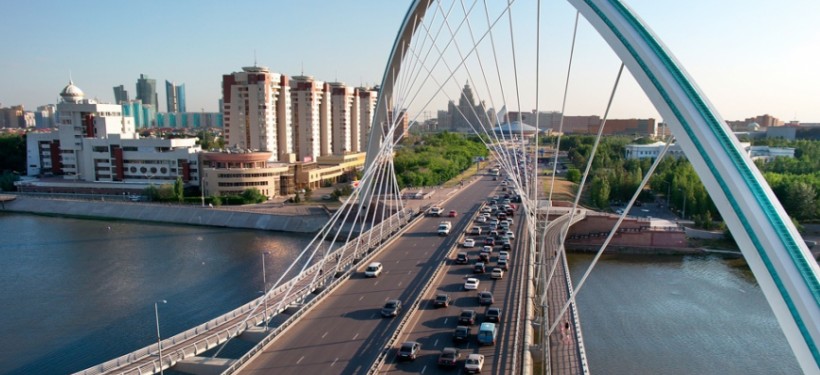ASTANA – Additional one-way roads and congestion pricing will decrease traffic jams in the capital, said a city akimat (administration) representative at a Sept. 27 press conference.
Traffic flow should accelerate by increasing the number of one-way streets, which, according to experts, is expected to improve the transport stream’s average speed by 33 percent.
The city administration plans to add one-way lanes with bus lanes to Akmeshit, Dostyk, Kunayev and Turkestan streets, as well as maintaining the current one-way status on Abai Avenue and Kenessary Street.
Astana Light Rail Transit (LRT) will also introduce congestion pricing (congestion charges) next year, special fees for cars entering the city during the morning and evening rush hours. Inter-peak periods will be free for all vehicles. Many big cities such as London and Stockholm have used this two-tiered system for more than 15 years to regulate traffic at the busiest times.
“Research and deep analysis have shown that the introduction of fee-paying entry allows increasing the average speed of transport by 15-20 percent,” said Astana LRT Deputy Chairperson Beibut Yeszhanov.
The new charges are a necessary measure to address the city’s ever-growing traffic congestion. To date, only 324,000 vehicles are registered of the 500,000 circulating in the capital.
The number includes 82,000 vehicles entering from cities and nearby villages each day. The capital has six entry roads from Karaganda, Kokshetau, Korgalzhyn, Kosshy, Kostanai and Pavlodar, with 17 percent of all vehicles (approximately 13,500) entering and leaving between7 a.m.-10 a.m.
“This is done in order to limit those [drivers] who do not need to go to work [early] or do not have to go at peak times. They will plan their time correctly. [They will] either drive later at 9 a.m., when they will not incur financial expenses, or they will use public transport and will be able to reach their destination without hindrance, because no matter how many broad roads we build, there will still be congestion,” said Yeszhanov.
Authorities identified the main solution for decreasing traffic jams is encouraging people to use public transport, yet they recognise its poor service. They stressed the situation should be tolerated until traditional bus conductors are replaced with ticket controllers, which will not only catch freeloading passengers, but also check the time interval between buses and their sanitary conditions.
In the last three years, the akimat has overseen projects to build 110 kilometres of new roads and repair102 kilometres of old ones. By the end of 2018, it also plans to install 28 kilometres of roads and 86 warm bus stops.

